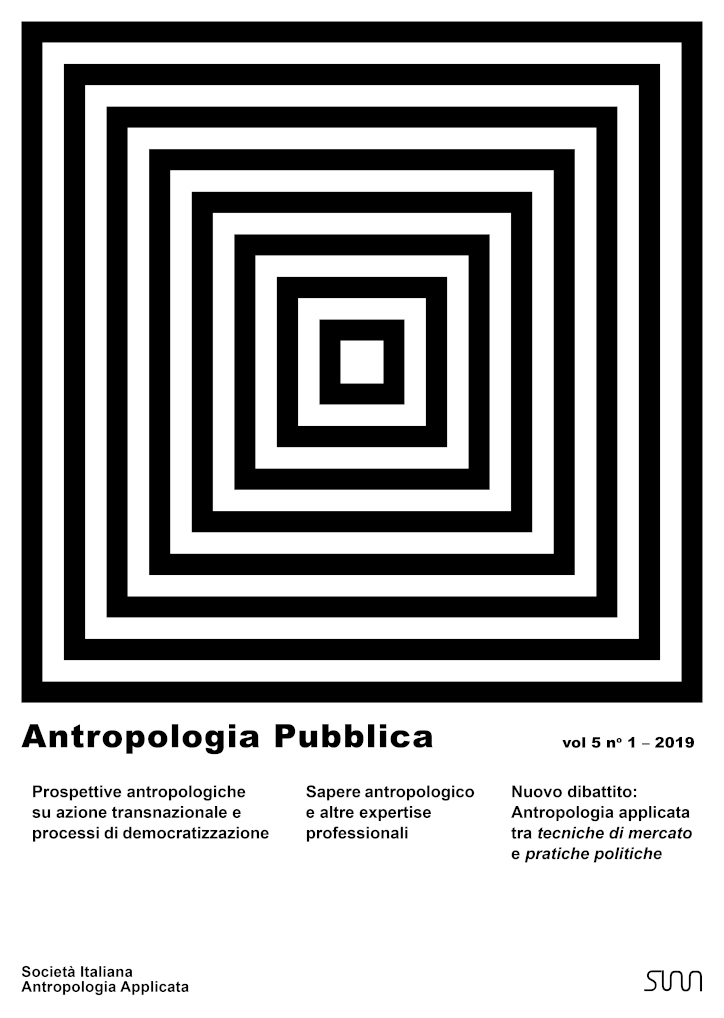Promuovere la democrazia. Prospettive antropologiche su azione transnazionale e processi di democratizzazione
DOI:
https://doi.org/10.1473/anpub.v5i1.145Palabras clave:
Anthropology of democracy; Anthropology of development; Anthropolo-gy of policy; Democracy assistance; Democratic governance.Resumen
Democracy assistance significantly expanded at the end of the XX century thanks to an important increase of available funds and the growth of actors engaged in this domain. At the same time social sciences, and in particular anthropology, addressed such theme by producing ethnographies of democracy assistance that applied the tools of critical analysis used in the field of international cooperation and development. In 2015 the adoption by the United Nations of the 2030 Agenda for Sustainable Development stressed the importance of democratic governance in aid rhetoric. Democracy assistance lies at the intersection of two policy worlds: international development and foreign poli-cy. This uncomfortable position generates ambiguities and contradictions mirrored in the performance of the transnational actors that populate the ecosystem of democracy pro-motion. The paper explores some important analogies that link the domains of democra-cy support and development aid. Despite some fundamental differences among the goals and the actors involved, the two fields tend to use similar technocratic approaches. As in the domain of development cooperation, transnational actors focus on the design and strengthening of formal democratic institutions and processes, thus turning the object of their supposedly aseptic action into an oxymoron: the apolitical deployment of technolo-gies, tools and standards of political reforms, with limited or no recognition of the social and cultural factors influencing the “vernacularization” of democratic values and prac-tices on the ground.



